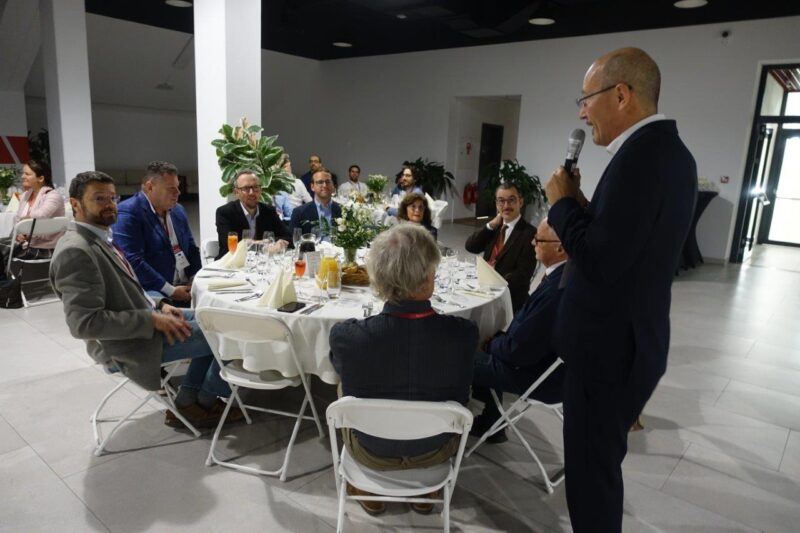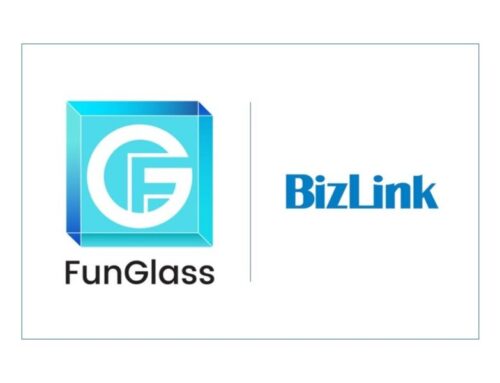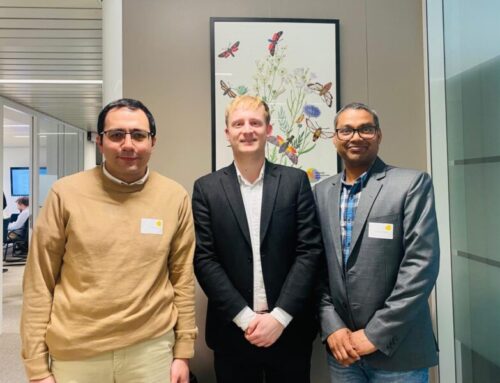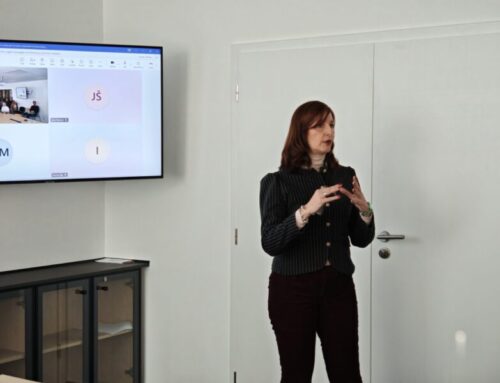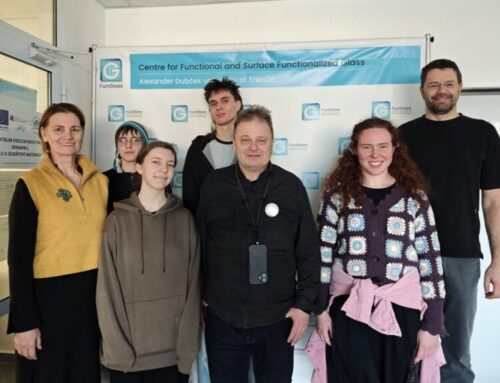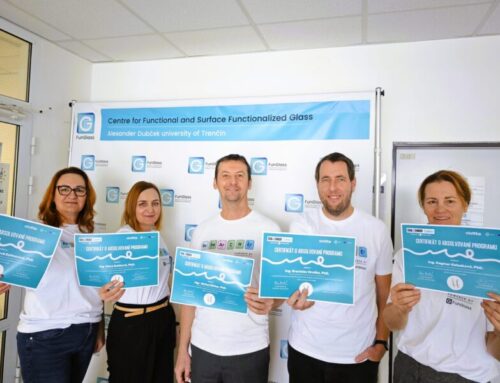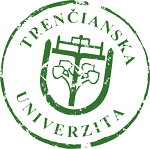Glass Science in Trenčín 2025
The Slovak and Czech Glass Conference took place from November 12–14, 2025, at AESKO in Trenčín, Slovakia. The event was jointly organized by Slovak Glass Society, FunGlass, and Rona company.
This year’s conference brought together 96 participants from academic and research institutions, industry, and PhD programs.
The scientific program featured 36 lectures and 25 posters presented by experts from Slovakia, Czech Republic, Poland, Germany, Italy, Austria, France, Spain, Iran, Brazil, Latvia, Denmark, and other countries.
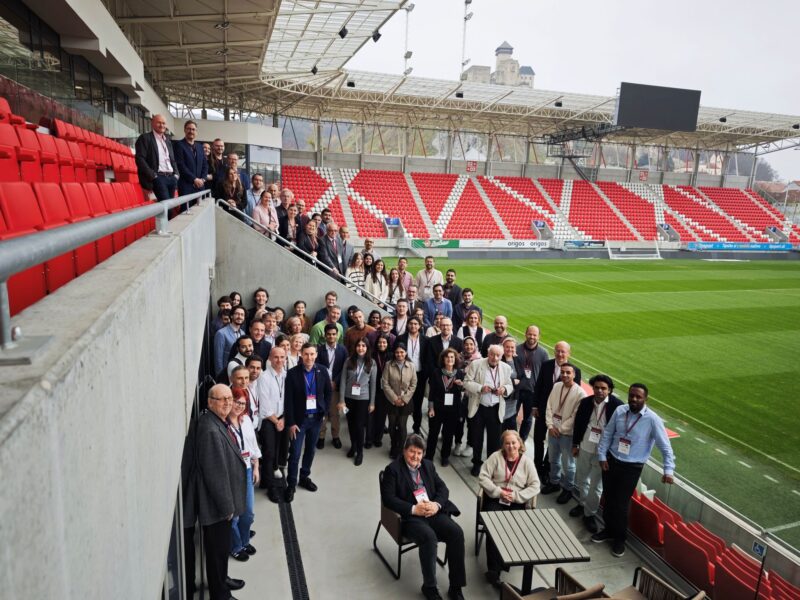
Invited Speakers
The conference welcomed several distinguished international experts as invited lecturers, including:
-
Prof. Lothar Wondraczek, University of Jena, Germany
-
Prof. Christian Roos, RWTH Aachen University, Germany
-
Prof. Enrico Bernardo, University of Padova, Italy
-
Prof. Aldo Boccaccini, Head of the Institute of Biomaterials, University of Erlangen–Nuremberg, Germany
-
Prof. Dr. Alicia Durán, Instituto de Cerámica y Vidrio, CSIC Madrid, Spain
-
Prof. Ondrej Gedeon, University of Chemistry and Technology (VŠCHT), Prague
-
Erik Muijsenberg, Commercial Director at Glass Service Group and Vice President of the International Commission on Glass (ICG)
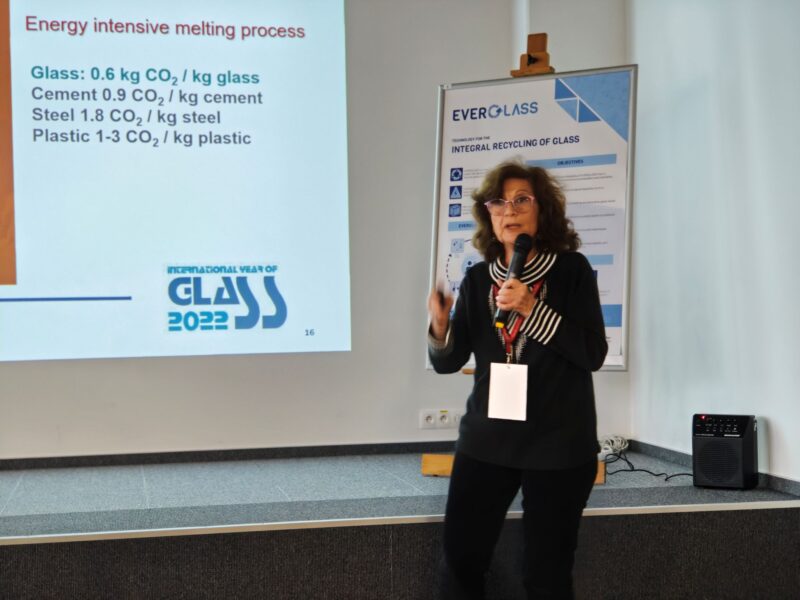
Student Poster Competition
An important part of the conference was the Student Poster Competition (supported by JECS Trust), highlighting excellent research by young scientists. The winners were:
1. Hannah Kissel, Institute of Biomaterials, University of Erlangen–Nuremberg, Germany:
Synthesis and Characterization of Lithium-Releasing Mesoporous Bioactive Glass Nanoparticles for Articular Cartilage Repair
2. Xiaoyi Xu, Aalborg University, Denmark:
Fracture Toughness of Zeolitic Imidazolate Framework Crystal-glass Composites Revealed by Molecular Dynamics Simulations
3. Valeria Diamanti, University of Padova, Italy:
Highly Porous 3D-printed 70S30C Bioglass Scaffolds from Engineered Silicone-based Emulsions
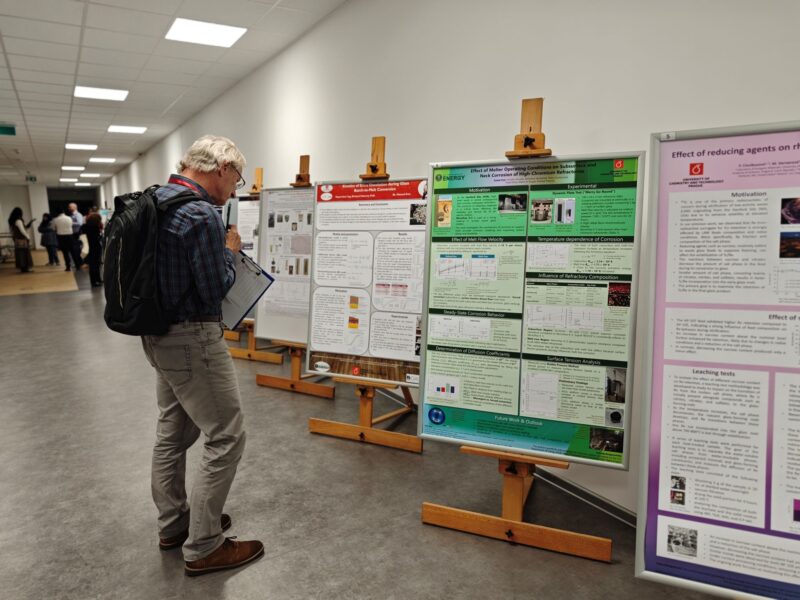
EverGlass Symposium – Glass Recycling Focus
The conference also featured a dedicated section of the EverGlass symposium on glass recycling, presenting lectures connected to the goals and activities of the EverGlass project.
EVERGLASS is a three-year EU-funded project aimed at developing an innovative technology for laser-based glass recycling, opening new pathways for sustainable and efficient processing of waste glass.
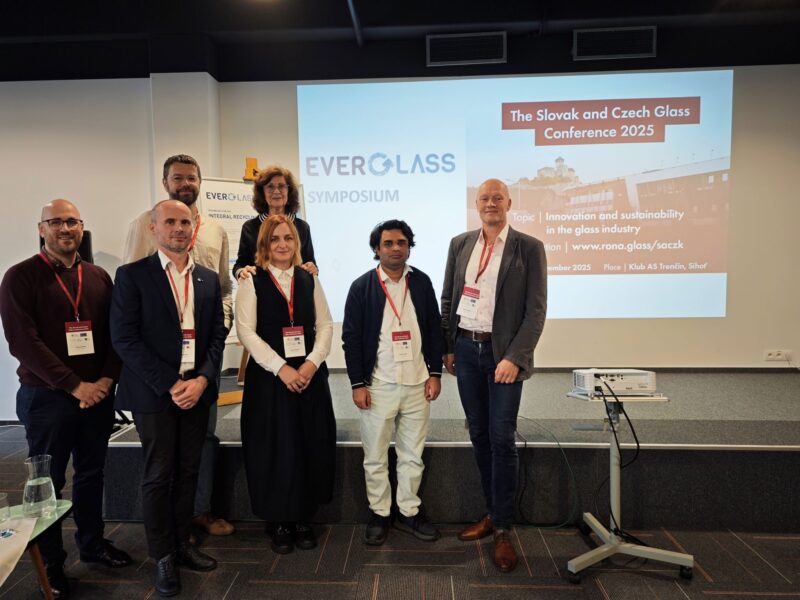
FunGlass Participation
FunGlass was well represented at the event:
Lectures
- Branislav Hruška: Role of Lithium Oxide in Modifying Thermal and Physical Properties of Alkaline Aluminosilicate Glasses
- Ali Talimian: Effects of Nb2O5 on the short- and medium-range structure of sodium zinc tellurite (TZN) oxide glasses (supported by the European Union NextGenerationEU through the Recovery and Resilience Plan for Slovakia under the project No. 09I01-03-V04-00014/2024/VA)
- Hamid Hassani: Effect of Alkali Substitution on Structure and Mechanical Performance of Chemically Tempered Silicate Glasses (supported by the European Union NextGenerationEU through the Recovery and Resilience Plan for Slovakia under the project No. 09I01-03-V04-00014/2024/VA)
- Martin Michálek: Bone Regeneration by A Multifunctional Bioactive Glass- Magnetic Nanocomposite with Dual IonDoping for Enhanced Angiogenesis and Osteogenesis
- Maryam Ahmadi: Structural, and Bioactive Properties of NitrogenDoped Alkali-Free Glasses for Biomedical Applications
- Aleksandra Nowicka: Mesoporous Bioactive Glass Coatings on Zirconia – Based Ceramic Substrates
- Nariman Alipanah: Development of a Hydrogel Composite Incorporating Calcium-Silicate Bioactive Glass and Antibacterial Propolis@ZIF-8 Particles for Tissue Regeneration (with the support of the Recovery and Resilience Plan for Slovakia, funded by EUNextGenerationEU, under the project No. 09I01-03-V04-00040)
- Ahmed Gamal: Greener, Safer, and Stronger: Plasma Ion-Exchanged Pharmaceutical Glass Vials For Precision Drug Delivery Dosing
- Jozef Kraxner: Everglass – Innovative Glass Recycling Technology Process
- Abel Ourgessa: Preparation of Waste Glass/Waste Refractory-Based Lightweight Alkali-Activated Materials Via Direct Ink Writing
- Hana Kaňková: Selection of Suitable Instrumental Techniques for Quantitative Chemical Analysis of Glass
- Alfredo Sanchez: Insights into Na+/K+ ion Exchange in Alkali-limesilicate Glasses Using Molecular Dynamics Study
- Ali Najafzadeh: Impact Damage Resistance of Pharmaceutical Glass: A Finite Element Analysis-Machine Learning Collaborative Approach (supported by the European Union NextGenerationEU through the Recovery and Resilience Plan for Slovakia under project No. 09I03-03-V04-00196)
- Amol Logavi: Design And Development of Hydrophobic Antireflective Coatings for Solar Cell Cover Glasses
- Shubham Gupta: Synthesis and Optimization of Series of CaLiLa(MoO4)4:Eu3+ Phosphors for Enhanced Thermal Stability in High-Power LED Applications
- Sheeraz Khan: Corrosion Mechanisms of AZS Refractories in Contact with Barium Cristallin Glass
- Mokhtar Mahmoud: Fused Deposition Modeling of Biopolymer-Bioactive Glass Composite Filaments for Bone Regeneration Applications
- Andrea Cibrínová: Optimisation of 3D Printing and Sintering Parameters Required for PiG (phosphor in glass) Preparation (funded by the EU NextGenerationEU through the Recovery and Resilience Plan for Slovakia, LumiPiG project No. 09I03-03-V04-00198)
Posters
- Lenka Buňová: In-house Glass Standards for Analysis of Lithium-containing Minerals (this work is part of a project funded by the Slovak Research and Development Agency under grant number APVV-22-0062)
- Monika Michálková: Effect of Glass Refractive Index on Phosphor-in-Glass Luminescence Performance
- Mansi Dua: DLP-Based Additive Manufacturing of Photocatalytic Glass-Ceramic Membranes for Wastewater Treatment
- Sajana Mohanan: An Approach Towards Converting Heterogeneous Waste Glass into Structural Glass-ceramic Parts through Binder Jetting 3D Printing (with the support of the European Union’s NextGenerationEU, as part of the Recovery and Resilience Plan for Slovakia under project number 09I01-03-V04-00076)
- Maria Waqar: From Waste to Value: Reaction Mechanism and Durability of Waste GlassBrown Mud Alkali-Activated Binary Systems (supported by the projects APVV-23-0352 and VEGA 1/0110/23, the Alexander Dubček University of Trenčín, the Internal Grant Scheme within the Project D16_2024)
The conference offered not only high-level professional presentations and engaging discussions but also a valuable platform for building and strengthening collaborations—both among scientists and between academia and industry partners.
On Thursday evening, participants enjoyed a festive Gala Dinner, where the poster competition results were announced. The event featured a lively performance by the local folklore ensemble Trúfalci, creating a warm atmosphere that inspired informal conversations and future cooperation.
We extend our sincere thanks to all participants for their contributions, professionalism, and the pleasant atmosphere that made this year’s conference truly exceptional.
